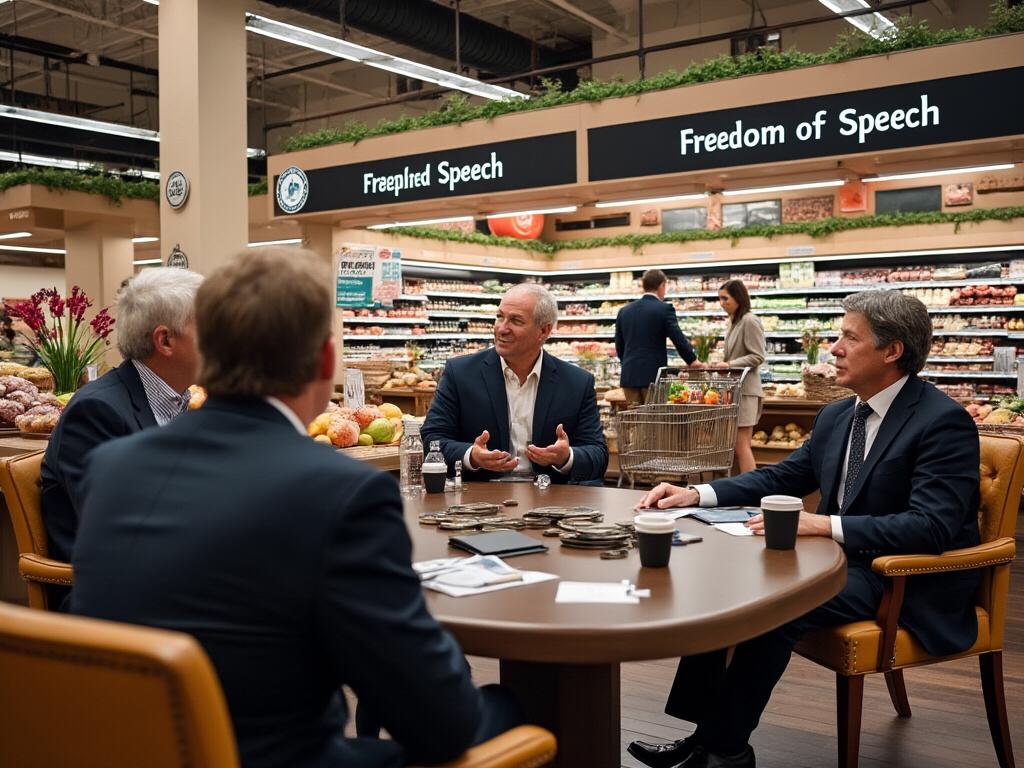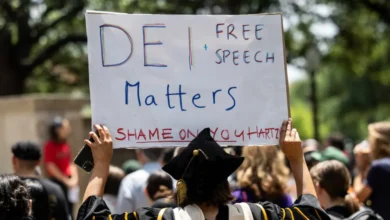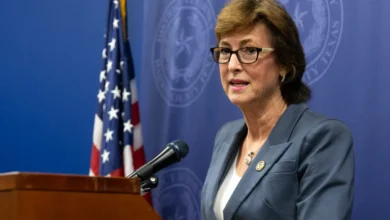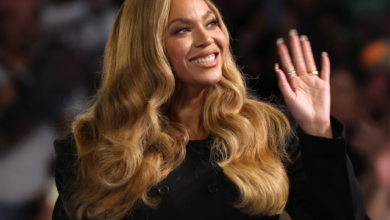In the contemporary socio-political landscape, a fascinating divergence in priorities has emerged, painting a vivid picture of the class divide. On one side, there’s a push from the affluent for the preservation and expansion of freedom of speech; on the other, a cry from the broader populace for more tangible economic relief, specifically in the form of affordable groceries. This dichotomy not only highlights differing immediate concerns but also underscores deeper systemic issues.
**The Affluent’s Crusade for Free Speech**
For those at the economic pinnacle, freedom of speech represents more than just a constitutional right; it’s a tool for influence, a means to shape public discourse, and a defense against what they might perceive as encroaching control over expression. Billionaires and influential figures often argue that free speech is the bedrock upon which all other freedoms are built. They fund think tanks, support media outlets, and sometimes acquire platforms to ensure that this freedom is not just preserved but expanded. Their argument often revolves around the idea that without free speech, democracy itself is at risk, potentially leading to authoritarianism where even economic freedoms could be curtailed.
However, this focus has its critics. Social media platforms, like X, have become battlegrounds where this right is both exercised and contested. Critics argue that this emphasis on free speech by the wealthy can sometimes serve as a smokescreen, distracting from or even exacerbating economic inequalities by dominating the narrative space with issues less pertinent to the immediate needs of the average person.
**The Everyday Struggle for Affordable Living**
Contrastingly, for many, the daily reality isn’t about the abstract rights to speak freely but about the concrete need to afford basic necessities. The conversation around grocery prices, as echoed in various posts on platforms like X, reflects a broader sentiment of economic strain. Here, the freedom to speak pales in comparison to the freedom from want.
The call for cheaper groceries isn’t merely about food prices but symbolizes a demand for economic policies that address income inequality, corporate profiteering, and the real wage stagnation that has not kept pace with the cost of living. For the majority, policy discussions around minimum wage, welfare systems, housing, and education are not just economic adjustments but are directly tied to their quality of life.
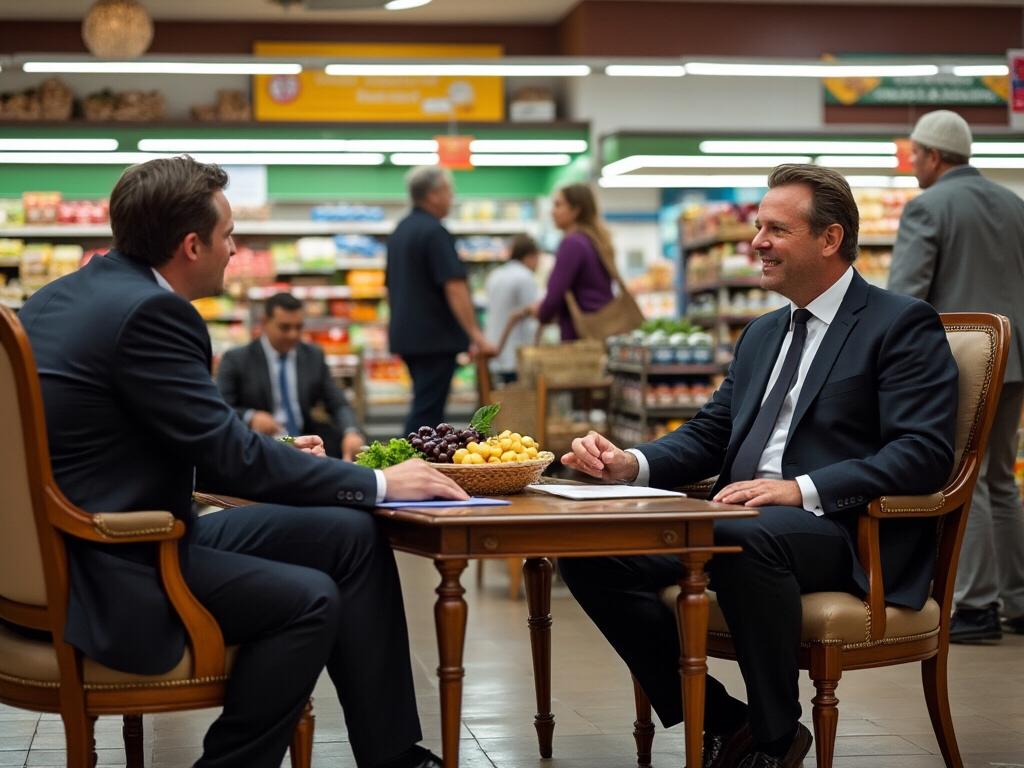
**A Tale of Two Priorities**
This divide in priorities isn’t just economic but philosophical. It poses questions about the value of abstract freedoms when basic needs are unmet. While free speech advocates argue that economic issues can be debated and solved only when speech is free, those struggling with daily expenses might see this as a luxury debate, one that doesn’t put food on the table or reduce the rent.
The discussion on social media platforms shows a nuanced view: some see the billionaire class’s focus on free speech as self-serving, preserving their ability to influence while the economic landscape remains unfavorable for many. Meanwhile, grassroots movements and posts highlight the irony of discussing freedoms when economic freedoms – like the freedom to live without the constant worry of financial insolvency – are not realized for a significant portion of the population.
**Conclusion**
The tension between the desire for freedom of speech and the need for economic relief like cheaper groceries encapsulates a broader debate about what societies should prioritize. Should the focus be on ideological freedoms or on ensuring that every citizen has their basic needs met? This isn’t a simple either-or scenario; ideally, a society strives for both. However, the current discourse suggests a skew in priorities, influenced heavily by where one stands on the economic ladder. As this conversation evolves, it might well define the priorities of governance, policy-making, and indeed, the very ethos of democracy in the coming years.

